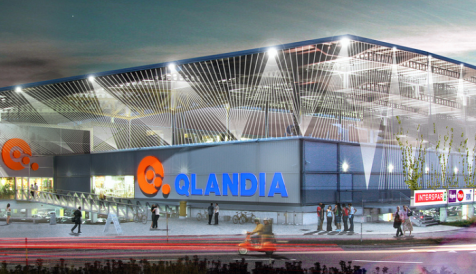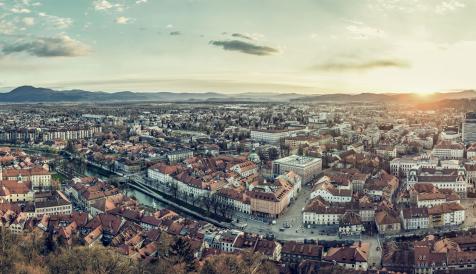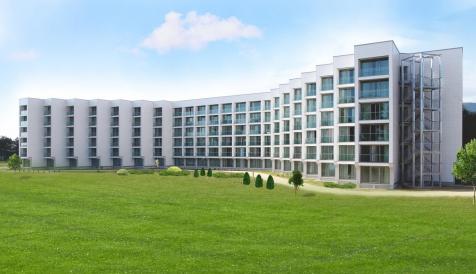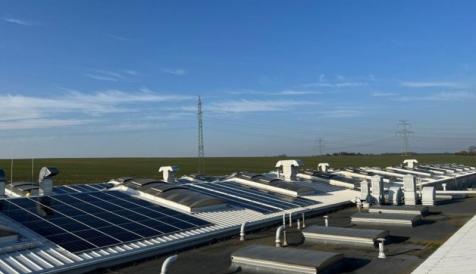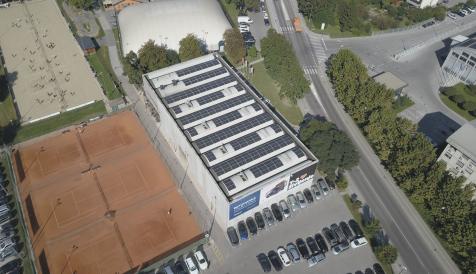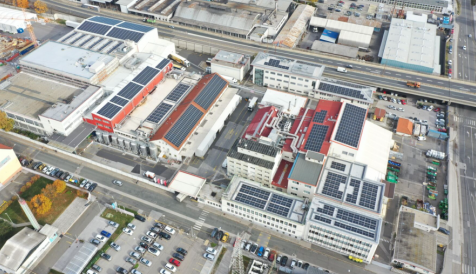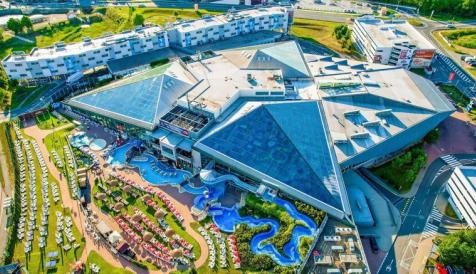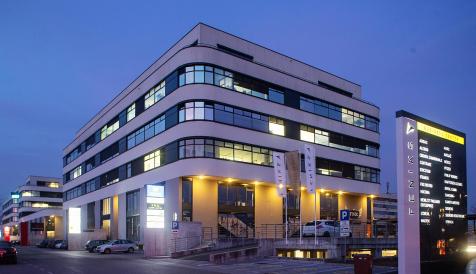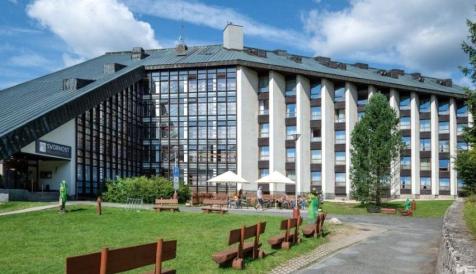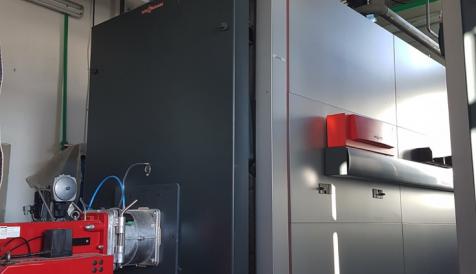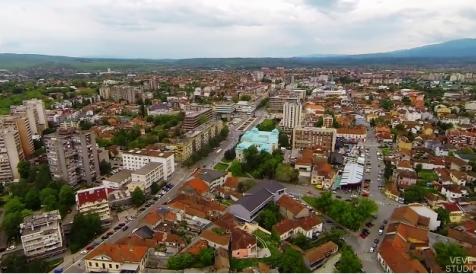Energy efficiency
There are very many ways in which we can help our different clients achieve better energy efficiency. These depend on their energy needs and consumption, their priorities, their core business. Here is a non-exhaustive list of some basic steps that can be taken in many cases.
Energy consulting
We carry out energy audits identify potential and serve as a basis for making qualified decisions on the next steps that can be taken to improve energy efficiency. For each measure we indicate the energy/cost savings, the investment amount required, payback period, priority level of each measure and the possibility of acquiring available grants.
Energy management
The introduction of energy management systems allows clients to control and manage energy consumption. This is a measure that gives us a transparent and simple overview of all energy and financial flows in real time. The automated collection and processing of data improves the reliability and quality of energy management systems, which consequently results in more efficient energy consumption.
Thermal and electrical savings measures
In many cases, we can achieve up to 50% or more electrical energy savings and reduce maintenance expenses simply by replacing obsolete technological equipment.
Besides the replacement of boilers, chillers and other equipment with more energy efficient technology, the following solutions help further reduce costs:
- Improved metering and billings systems
- Compensation of reactive power
- Introduction of surveillance and regulation of peak electrical power
- Energy-efficient lighting
- Accumulation of cooling energy
- Exploitation of waste heat
- Thermal insulation of buildings
- Replacing windows and doors with more energy efficient ones
- Automatic regulation of temperature in premises, according to specific needs
References
Centrice energy audit - Slovenia
Centrice Real Estate, Slovenia's biggest real estate company, hired Resalta to carry out a comprehensive energy audit of 20 of its shopping centers across the country.
City of Ljubljana 2 - Slovenia
Given the success of the first energy retrofit of the City of Ljubljana, the City has decided to undertake a second energy retrofit project to cover an additional 11 buildings that were not part of the first: primary schools, kindergartens, sports centers and municipal buildings.
Terme Čatez - Slovenia
As a year-round holiday destination and the largest health resort in Slovenia, Terme Čatež has a high level of energy consumption and as such has chosen to take steps towards improving its efficiency.
Renewable energy sources
Renewable energy sources are at the heart of what we do, and a major component of most of our solutions. Here is an overview of some of the renewables most often used in Resalta’s projects.
Biomass
Biomass is a renewable and CO2-neutral source of energy, which enables energy self-sufficiency. Taking into account the cost of energy, the transition to biomass can create significant savings compared to other forms of heating and is especially useful for businesses that have a year-long need for heating.
Biomass boilers are particularly well suited for industrial facilities, retirement homes, schools, kindergartens, hotels and sports facilities. By installing such biomass-powered systems we can easily ensure financial savings and reduce environmental impact.
Solar
Solar panels exploit the sun’s radiation and turn it into useful heat. This heat is stored in heat storage tanks and is available for heating buildings or sanitary. Besides bringing financial benefits, solar panels can significantly reduce carbon footprints, although they are best suited for regions with continuous sunny weather.
Heat pumps utilizing surrounding energy
The installation of heat pumps to heat buildings and sanitary hot water enables savings where various solutions are available, depending on the medium in question. Heat pumps can significantly reduce the cost of heating buildings and represent a renewable energy source. If reversible heat pumps are used, then cooling can also take place. For simultaneous heating and cooling, we use polyvalent heat pumps with high efficiency rates.
Cogeneration of heat and power
Specialized equipment exists that can use fuel such as biomass to generate both thermal and electric energy at once, making it a highly efficient solution for many types of clients. These CHP units can range from small ones that can provide energy to nursing homes, to whole plants that can power entire communities.
References
Kermi Solar Power Plant - Czechia
The 300 kWp photovoltaic power plant is situated on the rooftop of Kermi s.r.o. in Czechia.
Ludus Solar Power Plant - Slovenia
A 110 kWp solar power plant on the roof of the Ludus sports facility.
Henkel Maribor Solar Power Plant - Slovenia
Solar power plants on Henkel Maribor facilities with a total installed capacity of 738.45 kWp.
Large scale heat and power projects
Besides energy efficiency projects, Resalta also develops and carries out large-scale sustainable energy generation projects, generally exceeding 5MW in capacity.
Biogas
Methane from biogas, a natural byproduct of sewage treatment, landfill and animal-waste facilities, is a ready source of renewable energy.
Rather than burning this gas, which consumes energy and increases local emissions, Resalta can help commercial and public facilities use this biogas as a form of renewable energy.
Landfill gas
We design, build, maintain and operate renewable energy plants for facilities near landfills. These renewable energy projects safely divert landfill gas through extraction wells and pipe it to a landfill-gas-to-energy plant, where it is cleaned before specialized engines convert it to energy for use by the facility and, in many cases, the nearby community.
Cogeneration of heat and power
Resalta helps customers and communities harness the potential of biomass energy by building power and cogeneration facilities that cleanly burn renewable waste to fuel specialized engines that generate power and heat.
Large-scale heat pumps
The thermal power of rivers as well as wells and other underground bodies of water can be to produce heat for consumers in cities, district heating and private clients.
References
Aquapalace a.s.
New cooperation with Aquapalace with the installation of an electric boiler, which extends to the overall energy management of the system.
Feniks Business Center Solar Power Plant - Slovenia
Solar power plants with a total capacity of 136.5 kWp on the roofs of three buildings at Feniks Business Center.
Wellness Hotel Harrachov - Czechia
The installation of a new 200 kW cogeneration unit in Wellness Hotel Harrachov.
Financing
Sustainability and energy efficiency are widely recognized as principles that companies and public institutions include in their long-term strategies and goals. However, besides often lacking the know-how to implement and realize energy efficiency projects, many of our clients also lack the required funds to dedicate to this particular goal. This is why we have two financing models, one for the private sector and one for the public sector, which we apply in each and every single one of our projects, making sure our clients never spend a dime out of their own pocket.
The ESCO model
The term ESCO stands for energy service company. The model allows companies like Resalta to carry out energy services without the clients having to invest their own capital into the projects.
Using the ESCO model, we carry out the energy audit of your facilities, propose a solution, implement, operate and maintain it, but most importantly we provide the financing so that you can keep focused on your core business.
We guarantee results, and clients repay us from the achieved savings.
Learn more about the ESCO model >>
Public-private partnerships
Public-private partnerships (PPP) are in essence the ESCO model applied to public institutions. The public partner publishes a tender seeking a private partner for an energy renovation, be it for lighting, biomass, cooling, or any other energy need. The private partner proposes a solution, and if the tender is granted, takes on the entire project from beginning to end. This means providing all the financing, construction work and implementation, and maintenance for the duration of the contract signed.
All risks are taken on by the private partner which guarantees savings to the public partner. The investment is repaid to the private partner from the savings achieved.
References
Mercator – Serbia
Mercator’s retail centers throughout Serbia are relatively inefficient, dependent on district heating and have obsolete lighting systems.
City of Kruševac – Serbia
Kruševac is a city in southern Serbia, as well as the seat of a wider administrative area with 128,000 inhabitants. Its public lighting infrastructure is outdated and the city has published a tender for a public private partnership to renovate the systems.
Livar, Črnomelj – Slovenia
Following the realization of Resalta’s energy efficiency project in Livar’s Ivančna Gorica facilities, an energy audit showed that the Črnomelj site had an even bigger potential for savings.

